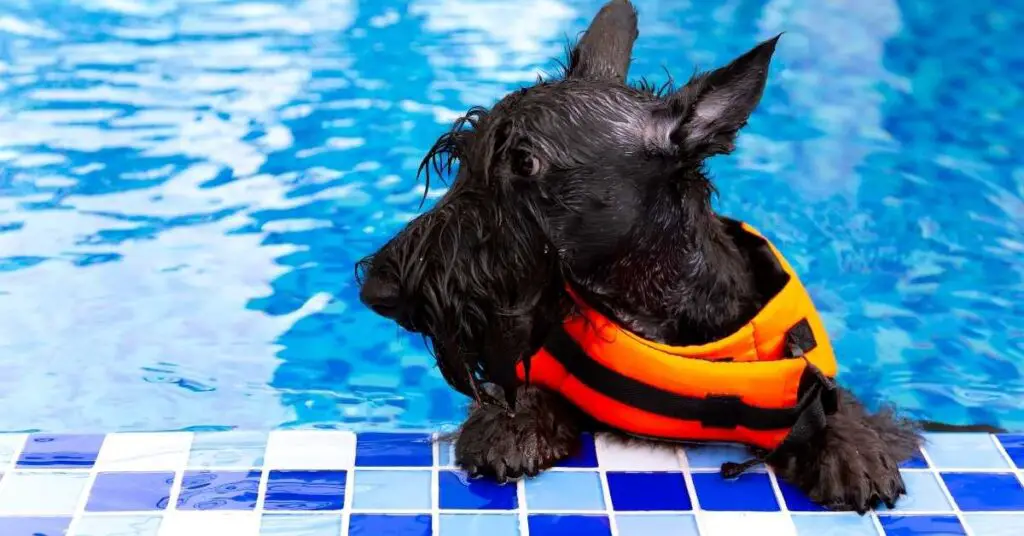Hey there, Schnauzer lovers! Have you ever wondered if your furry friend can chow down on some juicy watermelon? Well, you’re in for a treat! Turns out, watermelon can be a refreshing and healthy addition to your Schnauzer’s diet. But before you start slicing and dicing, it’s important to know what’s safe and what’s not for your four-legged companion.
In this article, we’ll explore the nutritional needs of Schnauzers and delve into the world of safe and unsafe foods for them. We’ll also take a closer look at the benefits of watermelon for dogs and any potential risks or precautions you should be aware of. Plus, we’ll give you some tips on how to introduce watermelon into your Schnauzer’s diet and provide a list of other fruits and vegetables that are safe for them.
So, let’s dig in and discover how watermelon can be a tasty and nutritious treat for your beloved Schnauzer, while keeping their health and well-being in mind. You don’t want to miss it!
Key Takeaways
- Watermelon is safe for Schnauzers to eat but should be introduced gradually and in moderation.
- Watermelon is hydrating and contains essential vitamins for Schnauzers.
- Watermelon should be fed without seeds and rind to prevent choking and digestive issues.
- Consulting with a veterinarian is recommended before introducing watermelon or any new food to a Schnauzer’s diet.
Understanding the Nutritional Needs of Schnauzers
Do you know what nutrients your schnauzer needs to stay healthy and happy? Just like humans, dogs require a balanced diet to thrive.
When it comes to schnauzers, it’s important to understand their nutritional needs to provide them with the best care possible. One way to ensure they’re getting all the necessary nutrients is by incorporating nutritional supplements into their diet. These supplements can help support their joint health, promote a shiny coat, and boost their immune system.
Additionally, some owners choose to prepare homemade dog food for their schnauzers. This allows them to have more control over the ingredients and ensures that their furry friend is getting a well-rounded meal. However, it’s important to consult with a veterinarian to ensure that homemade dog food provides all the essential nutrients schnauzers need to thrive.

Identifying Safe and Unsafe Foods for Schnauzers
Discover the delicious array of fruits that’ll have your furry friend wagging their tail with delight.
When it comes to understanding dietary restrictions for schnauzers, it’s important to know which foods are safe and which ones should be avoided. While schnauzers have specific nutritional needs, they can enjoy a variety of fruits, including watermelon.
Watermelon is a hydrating and refreshing treat for your schnauzer, as it contains high water content and essential vitamins. However, it’s important to introduce new foods gradually and in moderation to prevent any digestive issues. Always remove the seeds and rind before offering your schnauzer a slice of watermelon.
Remember to consult with your veterinarian to ensure your schnauzer’s specific dietary needs are being met and to get further guidance on introducing new foods.
Exploring the Benefits of Watermelon for Dogs
Indulging in a slice of this sweet and juicy fruit can provide your furry companion with a refreshing and hydrating treat that’s packed with essential vitamins and high water content. Watermelon isn’t just a delicious summer snack for humans, but it can also benefit your schnauzer in several ways.
Firstly, watermelon is an excellent source of hydration for dogs, especially during hot weather or after physical activity. The high water content helps replenish fluids and keeps your pup hydrated.
Additionally, watermelon is a natural source of vitamins A, B6, and C, which are essential for your schnauzer’s overall health and immune system. It also contains antioxidants that help fight against cell damage and support your dog’s well-being.
Just remember to remove the seeds and rind before feeding watermelon to your schnauzer to avoid any digestive issues.
So go ahead and share a juicy slice with your furry friend for a tasty and nutritious treat!
Potential Risks and Precautions
Make sure to take some precautions and be aware of potential risks when feeding watermelon to your furry companion. While watermelon can be a delicious and hydrating treat for dogs, there are a few things to keep in mind.
First, always remove the seeds and rind before giving watermelon to your schnauzer, as they can pose a choking hazard or cause digestive issues. Additionally, watermelon should only be given in moderation as it’s high in sugar and can lead to weight gain or an upset stomach if consumed in excess.
It’s also important to note that some dogs may have allergies or sensitivities to watermelon, so it’s recommended to introduce it slowly and observe any potential reactions. By following these precautions, you can safely incorporate watermelon into your schnauzer’s diet and provide them with a refreshing and nutritious treat.
Introducing Watermelon to Your Schnauzer’s Diet
When it comes to incorporating watermelon into your schnauzer’s diet, get ready to unleash a refreshing and nutritious treat that’ll make their taste buds go crazy.
Here’s how to introduce watermelon to your picky schnauzer:
- Start small: Begin by offering your schnauzer a small piece of watermelon to gauge their interest and reaction. Some schnauzers may immediately love it, while others may need some time to warm up to the new taste.
- Experiment with different forms: If your schnauzer isn’t a fan of plain watermelon, try freezing small chunks or blending it with their regular food to create a frozen treat or a tasty watermelon puree.
- Remove seeds and rind: Make sure to remove all seeds and the tough outer rind before offering watermelon to your schnauzer. These parts can be difficult for them to digest and may pose a choking hazard.
- Monitor for any adverse reactions: Like any new food, it’s important to monitor your schnauzer for any signs of digestive upset or allergic reactions. If your dog experiences any negative symptoms, discontinue feeding watermelon and consult with your veterinarian.
Remember, every schnauzer is unique and may have different preferences. Patience and consistency are key when introducing new foods to your furry friend’s diet.
Moderation and Portion Control
To fully savor the goodness of this juicy fruit, it’s essential to find the perfect balance between treating your furry friend and maintaining portion control.
While watermelon can be a healthy and refreshing snack for your schnauzer, it’s important to be mindful of portion sizes. Too much of a good thing can have potential side effects for your pet.
Watermelon is low in calories and high in vitamins A and C, which can support your dog’s immune system and promote healthy skin and coat. However, excessive consumption can lead to digestive upset, such as diarrhea or an upset stomach.
To avoid these issues, offer your schnauzer small, bite-sized pieces of watermelon as an occasional treat, rather than a regular part of their diet. Remember, moderation and portion control are key to keeping your furry friend happy and healthy.
Signs of Allergic Reactions or Digestive Issues
If your furry friend overindulges in this juicy fruit, they may experience signs of allergic reactions or digestive issues. It’s important to keep an eye out for any unusual symptoms after feeding your schnauzer watermelon.
Here are four signs that may indicate an allergic reaction or digestive issue:
- Vomiting: If your schnauzer starts throwing up after eating watermelon, it could be a sign of an upset stomach or food intolerance.
- Diarrhea: Loose stools or diarrhea can be a result of the body’s inability to digest certain components of watermelon.
- Itching or swelling: Allergic reactions may manifest as itching or swelling around the face, mouth, or paws.
- Lethargy: If your schnauzer becomes unusually tired or lacks energy after consuming watermelon, it could be a sign of digestive discomfort.
Remember to introduce watermelon gradually and in moderation to monitor your dog’s reaction. If you notice any of these signs, consult your veterinarian for further guidance.
Consulting with a Veterinarian
Seeking guidance from a veterinarian can provide peace of mind and ensure your furry friend’s health and well-being. When it comes to introducing new foods, such as watermelon, to your Schnauzer’s diet, it’s always a good idea to consult with a professional.
Veterinarians can provide personalized recommendations based on your dog’s specific needs and dietary restrictions. They can evaluate your Schnauzer’s overall health and determine if watermelon is safe for them to consume. It’s important to understand that while watermelon is generally safe for dogs, individual reactions can vary. Some dogs may experience digestive issues or allergic reactions to certain foods, including watermelon.
By consulting with a veterinarian, you can get accurate information and expert advice on how to safely introduce watermelon or any new food into your Schnauzer’s diet. Remember, your veterinarian is there to help you make the best choices for your furry friend.
Other Fruits and Vegetables Safe for Schnauzers
Discover a variety of delicious fruits and vegetables that’ll keep your furry friend healthy and happy! When it comes to providing your schnauzer with a well-rounded diet, it’s important to consider introducing new foods that offer nutritional benefits.
Here are some safe fruits and vegetables that you can add to your schnauzer’s diet:
- Carrots: These crunchy treats aren’t only low in calories, but they’re also packed with vitamin A and fiber. This can promote healthy digestion and support a strong immune system.
- Blueberries: These tiny fruits are rich in antioxidants, which can help protect your schnauzer’s cells from damage. They also contain vitamins C and E, essential for overall health.
- Spinach: This leafy green is a great source of iron, which can help prevent anemia in your schnauzer. It’s also rich in vitamins A, C, and K, as well as folate, important for cell growth.
By incorporating these fruits and vegetables into your schnauzer’s diet, you can provide them with the nutritional benefits they need while keeping their taste buds satisfied.
Creating Balanced and Healthy Meals for Your Schnauzer
To create balanced and healthy meals for your schnauzer, you can easily combine a mix of nutritious fruits and vegetables with their regular dog food. Creating homemade meals for your furry friend allows you to have full control over the ingredients and ensures they receive all the necessary nutrients.
When incorporating fruits and vegetables into their diet, it’s important to follow nutritional guidelines to maintain their overall health. Some safe options include carrots, green beans, blueberries, and sweet potatoes. These foods are packed with vitamins, minerals, and antioxidants that can benefit your schnauzer’s immune system and promote healthy digestion.
Remember to introduce new foods gradually and in moderation, as sudden dietary changes can upset their stomach. By following these guidelines, you can ensure your schnauzer enjoys a well-rounded and nutritious diet.
Training and Rewarding with Watermelon Treats
Imagine the look of pure delight on your schnauzer’s face as they eagerly devour the refreshing and tasty watermelon treats you’ve prepared for them. Training your schnauzer can be a rewarding experience, and using watermelon treats as positive reinforcement can help enhance the training process.
Here are three training techniques that can be paired with watermelon treats for effective results:
- Clicker training: Use a clicker to mark desired behaviors, such as sitting or staying, and reward your schnauzer with a small piece of watermelon each time they respond correctly.
- Target training: Teach your schnauzer to touch a specific target, like your hand or a target stick, and reward them with a watermelon treat when they successfully complete the task.
- Shape training: Break down complex behaviors into smaller steps and reward your schnauzer with watermelon treats as they progress through each step towards the final behavior.
These training techniques, coupled with the enticing taste of watermelon, will motivate your schnauzer to learn and obey, creating a strong bond between you and your furry friend.
Monitoring Your Schnauzer’s Overall Health and Well-being
Keep a close eye on your furry friend’s overall health and well-being by regularly monitoring their activity levels, weight, and coat condition. It’s essential to ensure that your schnauzer stays healthy and happy.
When it comes to nutrition, it’s important to provide a balanced diet that meets their specific needs. Watermelon can be a refreshing treat for your schnauzer, but it should be given in moderation. While watermelon is generally safe for dogs, it should be given without the seeds and rind, as they can cause digestive issues.
Additionally, make sure to incorporate regular exercise routines into your schnauzer’s daily life. Daily walks and playtime can help maintain their weight and keep them physically active.
Remember to consult with your veterinarian for specific nutrition tips and exercise recommendations tailored to your schnauzer’s individual needs.
Frequently Asked Questions
Can Schnauzers eat other fruits besides watermelon?
Yes, schnauzers can eat bananas and apples. For example, my friend’s schnauzer loves bananas as a treat. Both fruits are safe and can provide essential nutrients like potassium and fiber for your furry friend.
How much watermelon can I give my Schnauzer?
Watermelon can cause digestive issues in schnauzers if given in excessive amounts. However, when fed in moderation, watermelon can provide several benefits. It is hydrating, low in calories, and rich in vitamins A and C.
What are the signs of an allergic reaction to watermelon in Schnauzers?
If your Schnauzer shows signs of an allergic reaction to watermelon, such as itching, swelling, or diarrhea, it’s important to seek veterinary care. Treatments may include antihistamines or corticosteroids to relieve symptoms and prevent further complications.
How do I introduce watermelon into my Schnauzer’s diet?
To introduce watermelon to your schnauzer’s diet, start by offering small pieces as a treat. Gradually increase the amount over time. Watermelon provides hydration, vitamins, and antioxidants, promoting a healthy immune system and digestion.
Are there any potential risks or precautions I should be aware of when feeding my Schnauzer watermelon?
When feeding your schnauzer watermelon, it’s important to be aware of potential risks and take necessary precautions. While watermelon is generally safe, the high sugar content can cause digestive issues. Always monitor your pet and feed in moderation.
Conclusion
In conclusion, while watermelon can be a refreshing and nutritious treat for your schnauzer, it’s important to introduce it gradually and in moderation. As with any new food, there may be potential risks and precautions to consider, such as the presence of seeds or the possibility of an upset stomach.
However, by understanding the nutritional needs of your schnauzer and monitoring their overall health and well-being, you can create a balanced and healthy diet that includes watermelon and other safe fruits and vegetables. So go ahead, tantalize your schnauzer’s taste buds with a juicy slice of watermelon, but always remember to prioritize their health and happiness.







